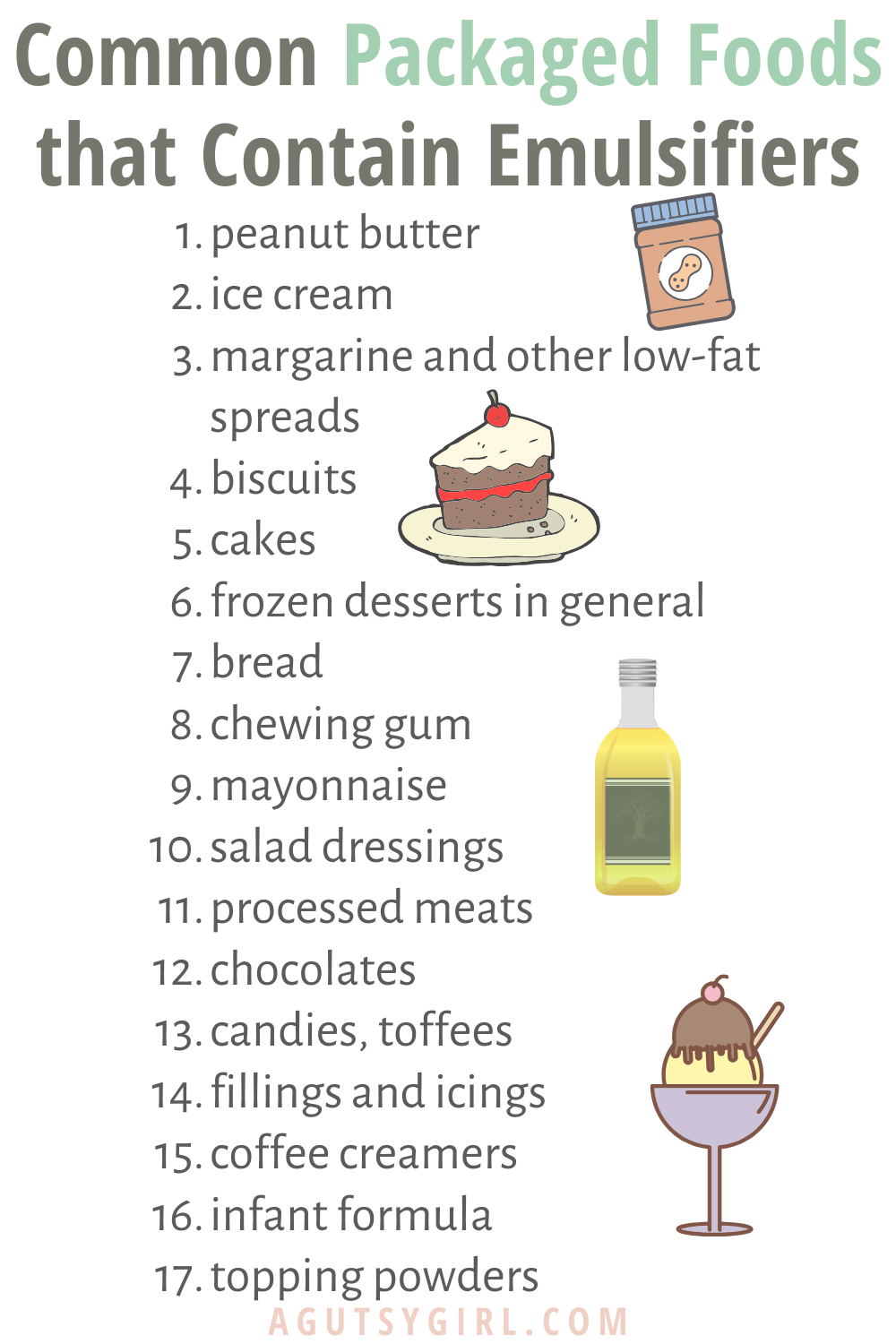Checking Out Different Kinds of Emulsifiers and Their Applications Across Industries
Emulsifiers play a vital duty in various markets, guaranteeing items preserve their preferred structure and security. You may be amazed to find the distinctions between all-natural and synthetic emulsifiers, each bringing special advantages to the table. Whether it remains in your favorite salad dressing or a skincare product, these materials are all over. Comprehending their applications can disclose much concerning item top quality and efficiency, but that's just the beginning of the story.
What Are Emulsifiers?
Emulsifiers are important substances that aid blend 2 immiscible liquids, like oil and water, creating a stable blend. You often encounter emulsifiers in day-to-day items, from salad dressings to creams.
In food manufacturing, emulsifiers improve the mouthfeel and security of products, making them extra enjoyable. Overall, recognizing emulsifiers can help you value the science behind the products you use daily, showcasing their importance in different sectors.
Types of Emulsifiers: All-natural vs. Synthetic
When taking into consideration emulsifiers, it is necessary to acknowledge the distinction between natural and artificial alternatives. Natural emulsifiers, stemmed from plant or pet sources, usually appeal to those seeking much healthier, extra eco-friendly items. Instances consist of lecithin from soybeans and beeswax, which can offer stability in food and cosmetic solutions.

Choosing between natural and synthetic emulsifiers steams down to your details needs. Ultimately, comprehending your needs will certainly aid you choose the ideal emulsifier for your task.

Devices of Action: Just How Emulsifiers Job
Comprehending the differences between natural and artificial emulsifiers establishes the stage for discovering how these materials feature. Emulsifiers work by reducing the surface tension between 2 immiscible liquids, like oil and water. They possess a hydrophilic (water-attracting) head and a hydrophobic (water-repelling) tail, permitting them to communicate with both stages. When you blend oil and water, emulsifiers position themselves at the interface, maintaining the combination.
As you mix, the emulsifiers develop a barrier around oil droplets, stopping them from integrating. By recognizing these devices, you can much better appreciate the crucial role emulsifiers play in various applications, from cosmetics to drugs, making certain the desired appearance and security in products you use every day.
Emulsifiers in the Food Industry
In the food sector, around 80% of processed foods have emulsifiers, highlighting their necessary function in enhancing texture and security. These active ingredients help mix oil and water, producing smooth, consistent items like salad dressings, sauces, and ice lotion. When you get a jar of mayo or a container of delicious chocolate syrup, you're experiencing the magic of emulsifiers at work.
Common emulsifiers like lecithin, mono- and diglycerides, and polysorbates aren't just about taste-- they enhance life span and avoid active ingredient separation. This suggests your preferred foods stay fresher and preserve their enticing appearance.
You'll likewise discover emulsifiers in baked products, where they add to moisture retention and crumb structure. By understanding the impact of emulsifiers, you can value how they elevate your food experiences, making each bite not only tasty but likewise regular. So, following time you take pleasure in a velvety dip or a rich dessert, remember the unseen heroes at the office!
Emulsifiers in Cosmetics and Personal Treatment Products
While you might consider emulsifiers mostly in food, they play a crucial role in cosmetics and personal care products also. These materials help mix water and oil, producing smooth, secure formulas in lotions, creams, and serums. You'll find emulsifiers in moisturizers, where they assure also distribution of moistening ingredients, making them more efficient on your skin.
When you use make-up, emulsifiers aid accomplish the best structure, permitting items to glide on effortlessly. They additionally boost the shelf life of items by stopping splitting up, guaranteeing you get one of the most out of your favored products.
Usual emulsifiers in this sector consist of glyceryl stearate and cetyl alcohol, which not just maintain formulas yet additionally offer skin advantages. So, following time you grab a cream or structure, bear in mind that emulsifiers are quietly working behind the scenes to maintain your products reliable and enjoyable to utilize.
Emulsifiers in Pharmaceuticals
Emulsifiers play a vital function in drugs by making certain that active ingredients are uniformly distributed within liquid solutions. When you're developing dental, topical, or injectable medications, you require emulsifiers to support combinations of oil and water, improving the bioavailability of the active substances. This stability is essential for preserving the effectiveness and security of the item throughout its rack life.
You could run into a number of types of emulsifiers, like natural ones obtained from plant sources or synthetic options particularly designed for targeted applications. Each type can affect the texture, absorption rate, and overall efficiency of the medication.
Additionally, emulsifiers can enhance the solubility of inadequately water-soluble drugs, making them extra therapeutic. Because of this, you can develop solutions that are less complicated to administer and much more effective for clients - Emulsifiers. Recognizing the role of emulsifiers will certainly aid you make informed options in pharmaceutical growth
Emulsifiers in Industrial Applications and Paints
When you think about industrial applications and paints, emulsifiers end up being important for attaining the preferred consistency and efficiency of products. They assist stabilize blends of water and oils, protecting against separation and making sure uniformity. In paint formulas, emulsifiers improve dispersion, allowing pigments to Find Out More mix flawlessly and offering a smooth finish.
You'll locate that different sorts of emulsifiers deal with details demands, such as boosting adhesion, reducing surface area stress, or improving toughness. In layers, they aid control viscosity, making application easier and extra efficient.
Beyond paints, emulsifiers play a significant role in adhesives and sealers, adding to much better bonding and flexibility. Emulsifiers. By picking the appropriate emulsifier, you can considerably enhance item high quality and performance, making your offerings extra affordable in the marketplace. To sum up, emulsifiers are important for enhancing commercial applications, ensuring that items meet the needs of consumers and market standards alike
Frequently Asked Inquiries
Are Emulsifiers Safe for Usage in Food Products?
Yes, emulsifiers in foodstuff are typically secure for consumption. They're examined for safety and security and authorized by regulatory firms. You can enjoy foods consisting of emulsifiers without worrying, as they boost structure and stability in your meals.
Can Emulsifiers Cause Allergies in Some People?
Yes, emulsifiers can create sensitive reactions in some individuals. If you're check my reference sensitive to specific active ingredients, it's essential to read tags meticulously and consult a medical care professional if you experience any type of unfavorable reactions. Keep notified and safe!
How Do Emulsifiers Effect the Life Span of Products?
Emulsifiers improve the rack life of products by supporting combinations, protecting against splitting up. They assist maintain appearance and taste, ensuring your things remain appealing and fresh for longer, inevitably decreasing waste and enhancing your total experience.
Exist Vegan-Friendly Emulsifiers Available?
Yes, there are plenty of vegan-friendly emulsifiers available. You'll locate options like soy lecithin, sunflower lecithin, and guar gum, which work well in different recipes while maintaining your meals plant-based and delicious.

What Are the Ecological Influences of Artificial Emulsifiers?
Synthetic emulsifiers can harm environments via contamination and bioaccumulation. why not find out more They may interfere with marine life and add to soil degradation. You ought to take into consideration natural alternatives to minimize these environmental influences while keeping product efficiency.